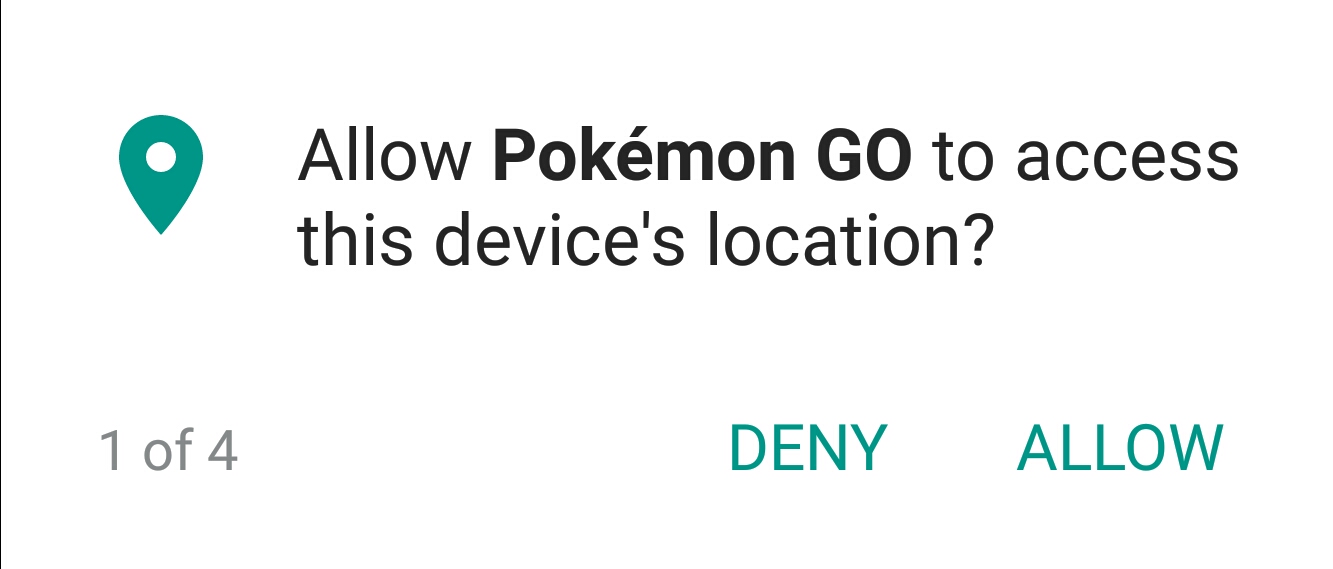You have most likely read and heard a lot in recent weeks about Pokémon Go. Millions of people across the United States, and now globe, have become part of the Pokémon Go phenomenon traipsing through the streets and parks to capture Pokémon characters that magically appear superimposed on one’s real surroundings as seen through a smartphone camera.
Pokémon Go is a mobile game that can be downloading for free, and utilizes what is referred to as augmented reality--where digital images and features can augment one’s reality. The game works by utilizing your map feature, GPS, internal gyroscope, and camera to have Pokémon characters “appear” in the real world. Players capture the characters by throwing Pokéballs at them; there are also visits to Pokémon Gyms and Poké Stops.
Sounds like fun, right? Millions of people of all ages have agreed, and have downloaded the Pokémon Go app and started playing. At the same time, there have been ample “Pokémon Go gone bad” stories in the media where players have been injured with distracted playing or potentially directed towards unsavory locations. There has also been a minor uproar over privacy concerns. So what do you, as a parent, need to know when deciding if and how to use Pokémon Go?
Here are the 3 Knows of Pokémon Go:
1. Know what information you are giving away
It should come as no surprise to say that most people do not thoroughly read contractual language. It is very easy to just click your way through the download process and agree to terms that you, later on, are uncomfortable with. Every app will walk you through a set of permission requests by the app company, and then have you agree to its Terms of Service. There is often a wide disparity in how easy the language is to understand (legalese versus plain English), the depth of information you are allowing access to, and the limitations of any possible recourse. (The website Terms of Service: Didn’t Read does a nice job of clearly explaining the legal language behind some of most popular apps and social networks.)


Pokémon Go is geared towards all ages (rated for Everyone); the app will collect a player’s age, locations, websites visited, and email address. Of particular interest for parents is when your child is under the age of 13. In the United States, apps and social networks that allow users under the age of 13 are bound to the Child Online Privacy Protection Act (COPPA), that tries to ensure adequate parental consent has been given and has certain restrictions in regards to advertising. Because of this, many popular apps and social networks adhere to a 13+ age requirement (Snapchat, Instagram, Twitter, Facebook).
Pokémon Go popularity is based on its unique blending of real world with virtual characters; in order to make this possible, the game utilizes location features on smartphone. Families should discuss their comfort level with giving out this information. The game allow requires access to a smartphone’s camera in order to overlay the virtual characters on top of the real world.




2. Know that free apps are not free
There is no such thing as a free lunch. Likewise, there is no such thing as a free app (or social network). In recent years a popular business model for tech companies entails the monetization of data collection and/or offering premium services (think of your LinkedIn) for heavy and dedicated users.
Pokémon Go is based on the freemium model where access is free, but there are advantages gained in the game by making in-app purchases. These in-app purchases utilize app-specific currency (Pokécoins), which cost the player (or their parent) real money. This is a major change from parents who grew up playing video games where every player paid the same price to buy the game, and game play could not be influenced by paying more money. What this means is that playing Pokémon Go may cost you nothing, or it could cost you hundreds of dollars if a player makes frequent in-app purchases.


In Pokémon Go, players will often purchase additional Poké Balls that are used to hurl at characters. While a player doesn’t technically have to purchase Poké Balls (they can gather them throughout their travels), buying them offers a large advantage to move through the game quickly.
We should understand that Pokémon Go, like most mobile games today, is not free--it just monetizing players differently from traditional video games. Given that the cost of play can completely run the gamut, it behooves parents to be engaged with their children on in-app purchases.
3. Know your surroundings
Pokémon Go is unique in that playing the game entails walking throughout your neighborhood, down streets, and through parks. Players visit Pokémon Gyms and Pokéstops that are usually set up in popular locations in the community (there is also the potential for growing commercialization where popular locations have brand tie-ins, such as McDonald’s).
So before you (or your family members) Pokémon Go, stop and look around. While this advice seems painfully obvious, the fact that playing the game entails walking while looking at a screen creates a particular concern for distracted walking (and, unfortunately, driving while playing).

Pokémon Go is unique and that it is taking the typically sedentary activity of mobile game playing and taking it outside. There are some incredible upsides to this trend, as it may be a way to get kids, teens, and adults to get up off the coach and outside. There is also a pretty remarkable learning component to Pokémon Go as players discover (or rediscover) their surroundings and some of the rich and forgotten history that was right in front of them all of this time. The digital world can complement the physical world, adding an additional layer of information and intrigue.
Walking while distracted, however, is dangerous. Here is what can be emphasized for players: you may be mentally inside the world of Pokémon Go, but you are still physically in the real world. It is augmented reality, not virtual reality. Players should be mindful of their surrounding when playing to avoid injury, and not travel to locations and at times that would be deemed inappropriate given one’s age and background.
If you are now deciding, “Should I stay or should I Pokémon Go now?” the choice is up to you. The remarkable success of Pokémon Go will likely trigger a glut of augmented reality games, so it is good to be aware of what this means for you and your family.
Deciding on your family tech use shouldn’t about the No's, but instead the Knows. Now you know.
Photos provided by David Ryan Polgar














.svg)

